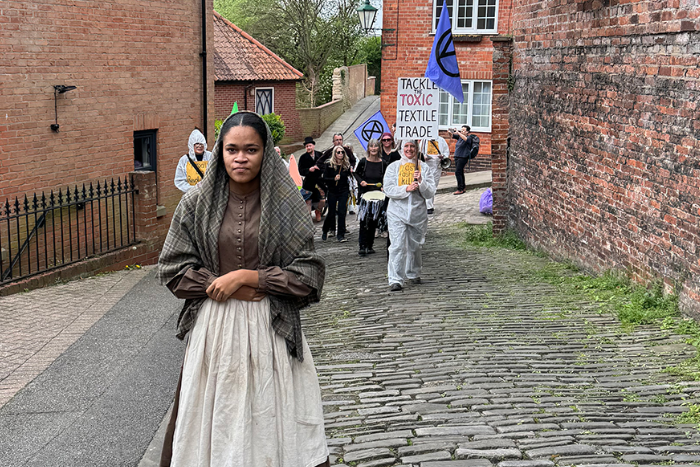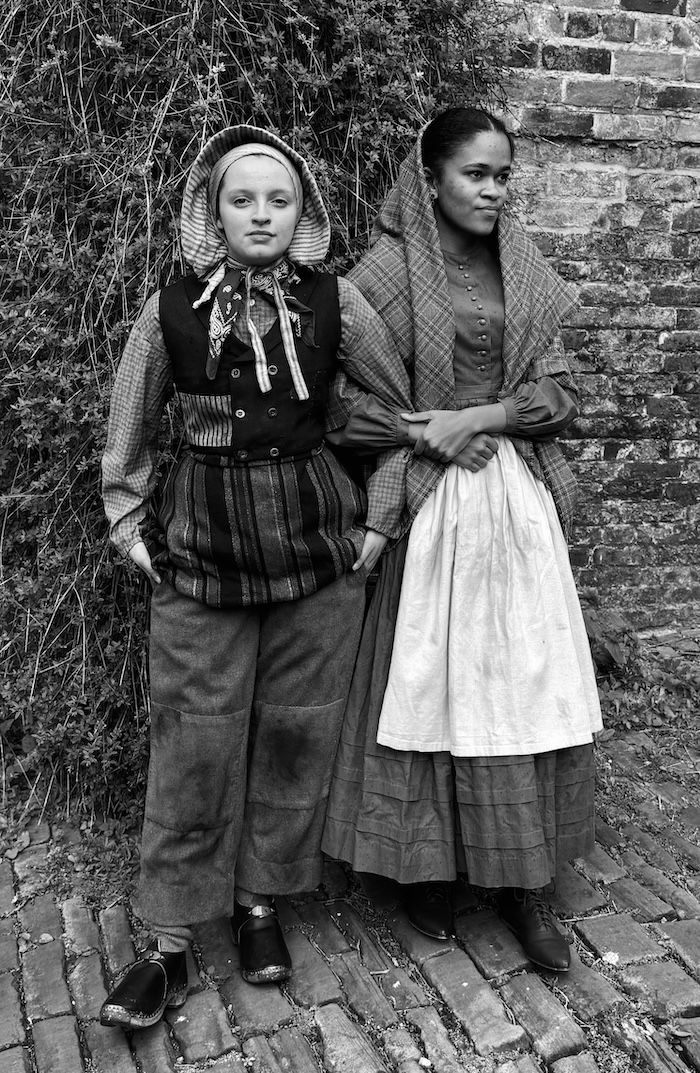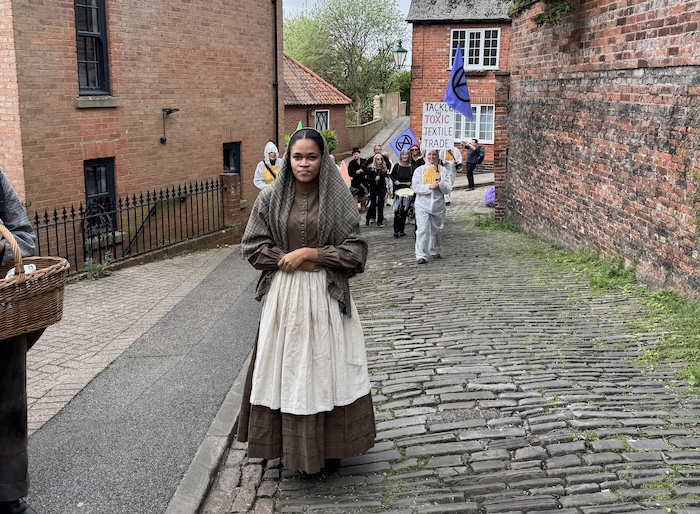
Toxic history of textiles – EXCLUSIVE
By Rebecca Poole
An 19th century textile worker crossed paths with a recent Toxic Textile Trade parade on Lincoln’s Steep Hill, as climate activists highlighted the environmental impact of the clothing industry.
The unlikely encounter at last weekend’s Global Repair Day, happened as actors filming the story of Lancashire Pit Lasses of the 1860s met campaigners marching to highlight the destruction caused by fast fashion.
Pauline Loven, Costume Historian, Costumier and Film Producer with CrowsEyeProductions, the company responsible for the film, said: “The encounter was a very happy one, my costume assistant, Cleo Daisy Gillespe, had studied sustainability as part of her fashion degree and it was a subject close to her heart.”
The project by CrowsEyeProductions is a short film directed by Nicole Loven on the history of dress. It focusses on the Lancashire Pit Lasses, who worked in the pit head of a mine in the 1860s.
Although the encounter wasn’t planned, Pauline describes the moment as serendipitous.
“The textile industry today is of immense concern to us all. As a costume historian I know how long clothes last, and that most of the clothes we wear will probably outlive us, so we were very happy to pause filming and chat to, and support, the protestors.”
The Global Repair Day parade marked the 12th anniversary of the Rana Plaza disaster, one of the worst tragedies in the fashion industry, which saw the collapse of a garment factory in Bangladesh killing 1,138 and injuring over 2,500 workers.
Activists, including members of Extinction Rebellion Lincoln, marched through the city playing drums and offering poetry readings, with one member wearing a coat upcycled by the community and others in hazmat suits to illustrate the toxicity of the trade.
Phoebe Shaft, climate activist and event coordinator said: “The coat is a hopeful reminder of the possibilities of a fairer, safer industry for all the workers that create our clothes. The possibility that our clothes can be treasured, repaired and altered so they’re kept, rather than being worn three times and then discarded, or sometimes not even taken out of the bag.
“Clothing and fashion should be fun and an expression of ourselves but not at the expense of our environment and humanity. We want a fair deal for all.”
Photographs and video Pauline Loven
Actor (front) Millie Kavita, appearing as a Lancashire mill worker



